News & Updates


There's money on the table for farmers that embrace solar. And with new announcements from the Government, Farmlands and ASB, there's never been a better time to embrace the sun. Solayer's Becks Smith and Farmlands Flex CEO Andrew Pegler joined Kathryn Ryan on Nine to Noon to talk about the growing interest in rural solar and storage and, as Pegler said: "I don't think it's an early adopter thing anymore. I think farmers are ready. They were just looking for someone to bring a solution that they trusted, somewhere they could ask questions and not feel like they're asking a silly question, so the response has been amazing."


The innovative Central Otago cherry orchardist says Fieldays is a “dream come true” and his favourite day of the year. He talks about encouraging farmers to farm energy through solar panels, and an “epic” cherry season.


In our policy manifesto, the number one thing we're hoping to get across the line is a scheme that gives everyone access to low-interest long-term loans for electrification upgrades. We believe the best way to do that is through the proposed Ratepayer Assistance Scheme and The Post's Harriet Laughton has looked at that scheme and what that might mean. Several large councils are already backing it, others are being asked to support it, and Simon 'MegaWatts' Watts has also indicated he's supportive. That could mean New Zealanders would be able to get cheaper finance to install electric appliances like heat pumps for space and hot water and solar and battery systems - and they would be saving money on their energy bills from day one.
.png)

At Fieldays, Minister Simon 'MegaWatts' Watts has lived up to his moniker (and followed through on a number of Rewiring Aotearoa's requests) and delivered some good news for farmers looking to run on the sun.


The Queenstown region has played a central role in New Zealand’s renewable energy history. And now it’s about to play an important role in the world’s renewable energy future.


"The Energy Efficiency and Conservation Authority is undergoing a painful pivot, having tens of millions slashed from its operational funding over several years as the previous administration’s policies are swept away or changed," writes David Williams in Newsroom. Mike Casey, whose all-electric orchard was supported by EECA grants, weighs in on the changes and what he would like to see EECA focus on.


Newstalk ZB's Ryan Bridge talks to Mike Casey about the launch of the Queenstown Electrification Accelerator (and announces his dream of getting solar panels on Mike Hosking's roof). As he said: "We think Queenstown is possibly the best opportunity we have to start trying out things and doing the real world action we need to quickly electrify a particular place. The business community is really aligned under the carbon zero 2030 targets set by council, the council is really aligned, and there are a lot of very active community members in this space who are super excited. Queenstown pays some of the highest energy prices in New Zealand, so it's a really good place to start and there are also problems with resilience from the Alpine Fault so it's a good idea to have Queenstown generating and storing energy itself and having machines that can use that energy." Listen from 11.20.


Crux talks to Mike Casey about the launch of Rewiring Aotearoa's ambitious new Queenstown Electrification Accelerator project. "The vision is big. To make Queenstown the global capital of total electrification - buses, cars, hotels, our airport, houses - and yes, even gondolas. For the region to become the world’s most electrified destination."


Rural solar already made sense in most cases, but ASB has made it even more appealing with the launch of what could be seen as the farm equivalent of a green loan: 0% interest for five years for farm installs worth up to $150,000. Aidan Gent, general manager of ASB Rural, talked to Kerre Woodham on Newstalk ZB and explained the thinking behind the offer.


Alexia Russell from The Detail podcast talked to Rewiring Aotearoa CEO Mike Casey about the Machine Count, the policy manifesto and the fact that the organisation "appears to be making headway when it comes to engaging a Government that’s disengaged on climate change", with Minister Simon Watts showing interest in low-interest, long-term electrification loans.


Lucy Cooper talks to Justine Prain and Vern Brassel about two free events that are "designed to light a spark for those thinking about electrifying their homes and businesses".


Whena Owen digs into some recent political ads targeting politicians in Wellington and asks Minister Simon Watts about the challenge that was laid down by Rewiring Aotearoa's 'MegaWatts' campaign. As he said: "I've had a lot of speculation about what I'm wearing under the suit."


⚡🍿 One man. One manifesto. Many portfolios. His name is MegaWatts and he has a once-in-a-generation opportunity to save households thousands on their energy bills, save the country $11 billion every year, slash our emissions, keep the lights on, grow the economy, and help New Zealand lead the world.✊ Will he grasp it? Or will others step in and steal his thunder in next year’s ‘electric election'?


In this week's collection of electric eyecatchers, Utrecht unveils a pioneering car sharing scheme that embraces vehicle-to-grid technology and bidirectional charging; a company making solar panels that blend in beautifully; a successful community energy project in Rio De Janeiro helps favela residents; China continues to dominate the global electrification race; Saul Griffith releases a new book on how to go electric; and reviewers* call the latest instalment of MegaWatts "a gripping romp, a triumph, a tour de force".


Bernard Hickey welcomes back Rewiring Aotearoa CEO Mike Casey to The Spinoff and Kiwibank's When the Facts Change podcast after the release of the Machine Count report. It found there are around ten million fossil fuel machines in the country and 84% of them could be cost-effectively replaced with electric equivalents.


Mike Casey appeared on Michael Laws' show on The Platform last week to discuss the role of solar in our energy system, the goals of Rewiring Aotearoa, the bipartisan appeal of going electric because everyone gets what they want, and what to do with waste. As he said at the end of the interview, "if I can convince Michael Laws, I can convince anyone."


A massive week for New Zealand's electrification push with a big conference, a big manifesto and a big campaign aimed at a minister with a once-in-a-generation opportunity to do something big; Farmlands and Blackcurrent launch a new product to make it easier for farmers to invest in solar and storage; ASB compares a house run on dino juice with a house run on electricity; some sage advice from a solar expert about what to look out for; and a car that brings a new meaning to 'electricute'.


Rewiring Aotearoa CEO Mike Casey joined RNZ's Emile Donovan to discuss one of the most important ideas from our recent policy manifesto: low-interest loans that will help accelerate electrification. He talks about why it's getting support, how the scheme will work, and how renters will benefit.


Our policy manifesto is aimed at all politicians, officials and regulators, but we’re laying down a particular challenge to the current Minister of Energy, Climate and Local Government Simon Watts, or as we have named him, MegaWatts. Here's how you can help.


If New Zealand is going to, as Sir Peter Blake almost said, make the electric boat go faster, we need all our politicians, regulators and officials onboard so we get the changes we need. There has been broad support for the manifesto and it was comforting to see the Electricity Authority come out so strongly in support of it.


Newsroom journalist Marc Daalder, who was facilitating the discussion on the first day of the Electrify Queenstown conference, reports on the Government's active consideration of one of the most critical proposals in Rewiring Aotearoa's manifesto: electrification loans (and not just for solar) for everyone.

Rewiring generally supports the improvements proposed in the Bill, and seek that the scope of these improvements be expanded to include the legislative changes required to enable the Ratepayer Assistance RAS due to the significant infrastructure and cost of living improvements this innovative financing RAS unlocks.
Read moreShareable linkDownload
We believe the Multiple Trading Relationships proposal will benefit consumers by providing customers with more choice over how they buy and receive fair payment for exported solar.
Read moreShareable linkDownload
Rewiring Aotearoa is very supportive of the Electricity Authority’s introduction of requirements for distributors to provide payments for exports at peak based on the avoided long run marginal cost of peak demand. This will fairly support consumers to invest in batteries and encourage people to supply surplus energy to the network when it is needed, benefiting all customers through lower electricity costs that we all pay through our power bills. To unlock the full extent of these benefits it is important that the intended group of customers have access to these payments. This intended group is the small businesses who do not have the bargaining power to negotiate fair benefits. It excludes large customers who are already more likely to be rewarded for the benefits their injection (exports) provides. Unfortunately the preferred proposal the Electricity Authority (the Authority) has set out in this consultation will not achieve this, and will reduce benefits to customers and does not align with the Authority's statutory objectives.
Read moreShareable linkDownload
We strongly support the Electricity Authority’s aim of removing unnecessary barriers to more efficient investment in distributed generation and maximise the benefits it brings for all New Zealanders. It is great to see the progress the EA is making in its Networks connection workstreams which will translate in real benefits for consumers. We agree with the Electricity Authority's description of benefits from distributed generation and support the proposals set out in this consultation although propose some additional measures and modifications.
Read moreShareable linkDownload
Solar and batteries - in homes and EVs - offer signicant resilience benefits during times of crisis and the Ratepayer Assistance Scheme can help unlock private investment.
Read moreShareable linkDownload
Electrification is the single biggest opportunity to improve fuel security in New Zealand and that's why we think we need a bold national energy independence plan, not just more incremental changes to our current fuel security plan.
Read moreShareable linkDownload
Unmanaged EV charging that occurs at network and system peaks could add unnecessary electricity infrastructure investment, increasing bills for all customers. Investment in our networks is scaled to meet peak demands and has the potential to significantly increase electricity bills over the coming decades. It is important we take action to shift demand, where it makes sense, to avoid peak demand increases. Rewiring Aotearoa is very supportive of the efforts the Ministry of Business Innovation and Employment is taking to consider options to deliver a more flexible electricity system that will lower system costs for all consumers. Uptake of smart EV chargers is one way to manage peak EV demand and support a lower system cost. However we do not think there is a strong enough case to mandate that all fixed EV charging units sold in New Zealand must be smart.
Read moreShareable linkDownload
Rewiring Aotearoa supports the proposed changes to Multiple Trading Relationships (MTR) (allowing two traders – distributed generation and consumption), which will increase consumer choice and introduce more competition to retail tariffs. For example, it will disincentivise tariffs that offer competitive export tariffs, but also ramp up consumption tariffs. The Electricity Authority should also implement changes at this time that require retailers to allow large sites to share solar across multiple co-located installation control points (ICPs, i.e. ICP aggregation), and facilitate peer to peer trading for small scale renewable generators with local sites. Rewiring Aotearoa disagrees that delaying these steps via a staged approach is in consumers best interest. Consumers should not have to wait until demand increases to unlock the benefits of their solar and battery systems or access more competitive options from retailers. This should be supported now, to help consumers make investment and retail tariff decisions that reduce their overall energy bills.
Read moreShareable linkDownload
We appreciate that broader resource management reform is underway that will ultimately provide a more consistent national framework. However, we cannot afford to wait for the perfect system while workable solutions are delayed. In the meantime, inconsistent and unnecessary consenting requirements for small-scale ground-mounted solar are slowing down projects that could deliver immediate benefits - lowering energy costs, strengthening resilience, and supporting the grid. While long-term reform is important, immediate adjustments will ensure small-scale solar isn’t held back by outdated or inconsistent rules.
Read moreShareable linkDownload
"Investing in natural gas in homes doesn’t make economic sense anymore for New Zealanders ... Rewiring Aotearoa’s view is that the Government should support a managed transition away from natural gas for the homes and non-industrial businesses connected to reticulated natural gas distribution networks. This would help address inequity for households on low incomes and renters, and provide greater certainty over how quickly customers will disconnect, when networks would likely retire and cost recovery timelines."
Read moreShareable linkDownload
Rewiring Aotearoa's submission highlights that successful digitalisation should allow customers to maximise benefits from their provision of demand flexibility and solar and battery exports, without third parties (aggregators or VPPs) routinely taking a cut of the value. Retail offerings that include time of use prices and fair export tariffs will be key enablers of successful digitalisation of the electricity system. Customers need a fair deal through their electricity prices and export tariffs. This means the customers need to have the option to choose from a range of retail tariffs that include time of use prices, fair export tariffs (that reflect the value in the wholesale market) and symmetrical export tariffs from distributors.
Read moreShareable linkDownload
Rewiring Aotearoa is extremely supportive of the focus the Electricity Authority is putting into exploring opportunities and seeking views on a more ‘decentralised’ electricity system. It’s great to see the release of the Green Paper seeking views from New Zealanders on the role they can play in the future electricity system and how a more decentralised electricity system should evolve. As the Green Paper explains New Zealanders will benefit from a more decentralised, community-centric energy system through lower energy bills, greater energy resilience, fuel security and lower emissions. However there are some assumptions and emphasis in the Green Paper that we think needs to change
Read moreShareable linkDownload
Rewiring Aotearoa is supportive of the Innovation and non-traditional solutions allowance (INTSA) and the development of Guidance for submissions. Read our full submission by downloading the document.
Read moreShareable linkDownload
While the potential implications of the Bill are wide-ranging, our submission has focused on the potential implications for the electrification of Aotearoa NZ if the Bill is enacted as proposed. This is pertinent to Rewiring’s work, because one of our core aims is to help reduce energy bills for customers - NZ’s households, farms, and businesses. Significant changes are needed to fix the status quo, and we are concerned that the Bill may inadvertently bake in the existing rules governing the sector.
Read moreShareable linkDownload
Rewiring Aotearoa is supportive of the development of Publicly Available Specification for Residential solar photovoltaic (PV) and battery storage systems guidelines. These guidelines can provide a consolidated and trusted source of information to help households navigate the process of choosing and installing solar PV and batteries. There is some messaging and information in the PAS that we think needs to be changed or added to provide households with the best advice to support them to maximise benefits from solar PV and batteries. This includes removing the focus on pay back periods and informing households about cost savings from day one from solar PV and batteries financed over the life of the system. Households also need information about the potential risks of some existing lease to own sales models which provide little real benefit to households with the bulk of the savings captured in suppliers profits. Download the document to read our full submission.
Read moreShareable linkDownload
In a cross-submission, Rewiring Aotearoa has responded to a range of concerns raised by other submitters in the Energy Competition Task Force's consulation.
Read moreShareable linkDownload
We support the role that government procurement can play in benefitting every community across the motu. We agree that simplifying and streamlining the procurement process is important, and reducing rules is a logical starting point. However, this should not undermine key considerations and past efforts in ensuring government spending supports long-term positive outcomes. Government procurement can support us to go for growth by increasing productivity of energy, which is a fundamental economic input
Read moreShareable linkDownload
Overall, Rewiring Aotearoa welcomes the objectives of this package of proposals. from the Energy Competition Task Force. We view the package as a critical step in improving energy system outcomes for all consumers. We consider retailers paying consumers fairly as a critical step, and we are mostly satisfied with the Task Force’s approach to this (initiative 2C) and think it will create better outcomes for New Zealand consumers and the energy system as a whole. In contrast, the Task Force’s preferred option around how distributors are required to reward peak input from consumers (initiative 2A) will not in our view meet the Task Force’s (or the Electricity Authority’s) stated objectives.
Read moreShareable linkDownload
Focusing on the emissions reductions at home through electrification is a major opportunity (and challenge) for Aotearoa NZ. Homes, farms, and businesses must play a role in driving emissions reductions through electrification and the potential must be recognised and addressed to our 2035 international climate change target.
Read moreShareable linkDownload
Rewiring Aotearoa believes we need to make better use of our existing infrastrucuture, see customers as an essential part of a 21st Century energy system and that electrification will lead to much greater energy security and resilience.
Read moreShareable linkDownload
Rewiring Aotearoa's submission to the Electricity Authority on its Network Connections Project - Stage One is in and it is good to see the Authority practicing its statutory objective of protecting the interests of consumers.
Read moreShareable linkDownload
The Ministry for Business, Innovation and Employment opened consultation on a discussion document about amendments to the Electricity Safety Regulations to expand the permitted voltage range for electricity supply. Rewiring Aotearoa's submission believes changes are needed to prepare for the rapid adoption of customer energy resources, and electricity distribution companies need to be compelled to allow export limits to be increased.
Read moreShareable linkDownload
The Department for Prime Minister and Cabinet and the Ministry for the Environment proposed a topic for a Long Term Insights Briefing entitled 'Everyone plays a part: building New Zealand’s resilience in the context of global trends and our unique natural environment'. Rewiring Aotearoa's submission says energy security and resilience, critical infrastructure failing and commodity/energy price shocks are especially important for Aotearoa NZ’s resilience to future challenges, and farms can also play an important role.
Read moreShareable linkDownload
Our ERP2 submission outlines what we think needs to be done to improve the Government's plan to reach our climate targets, electrify the Aotearoa New Zealand economy and build a fairer future energy system for New Zealanders that saves people money and does not leave anyone behind.
Read moreShareable linkDownload
There is a relevant saying: ‘Information wants to be free’. While the proposed Consumer and Data Product Bill takes a step in that direction, it does not offer the level of freedom that could be technically accomplished, nor the level of freedom that is likely to unlock the maximum level of innovation.
Read moreShareable linkDownload
Rakiura / Stewart Island faces the highest electricity prices in New Zealand. Successive governments have funded report after report and numerous fly-in visits by Ministers have failed to change this situation for the local community. Rewiring Aotearoa believes the opportunity is to harness existing solar and battery technology to deliver significant cost-of-living savings and reduced emissions at scale via electrification on Stewart Island right now. With financed solar and batteries, electricity usage costs for residents could be halved without delay. Rewiring Aotearoa has been engaging with the local community, who have been sending us their power bills. On Saturday 27th April some of the Rewiring team visited Stewart Island (including Mike Rewi who has strong whakapapa to Stewart Island). What we are hearing from this community is many locals fear the proposals and the likely “preferred option” will be focused on replacing current diesel generators, not on reducing the cost of energy for consumers. Our proposal outlines Rewiring Aotearoa’s pitch for an alternative approach to develop a community-led energy solution for the Island.
Read moreShareable linkDownload
Overall, we encourage the Commission to think beyond competition merely as a driver for innovation, to consider the outcomes from innovation for the long term benefit for New Zealanders. Rewiring Aotearoa believes one such outcome from market innovation is supporting the electrification opportunity for Aotearoa New Zealand. The Commission has the opportunity to play an active role in driving this not just through the energy market, but also through the personal banking market. It is important that these functions are not seen in isolation, but as a system, to better realise the Commission's role in delivering on NZ’s emissions reduction plan, and 2050 Nationally Determined Contribution.
Read moreShareable linkDownload
18 March 2024: New Zealand is one of the first places in the world where electric appliances and vehicles are now more affordable than their fossil fuel equivalents. A new report has shown that, on average, homes currently using gas appliances and petrol vehicles could save thousands every year if they went electric and got their electricity from a combination of rooftop solar, home battery and New Zealand’s already highly renewable grid.
Read moreShareable linkDownload
In this future, consumer infrastructure needs to compete on a level playing field with traditional infrastructure – if a $10,000 battery on a consumer’s premises can provide the same service as a $20,000 supply-side asset (a network or generation investment), the consumer’s asset should be selected for the service. However, today there is a systemic bias towards traditional infrastructure largely because it is seen as significantly more ‘dependable’. There are a variety of historical reasons for this. Our primary context to this submission is that many of the assumptions and rationale for this bias are quickly falling away, and DPP4 provides a significant opportunity for the Commerce Commission (the Commission) to reset the assumptions and correct some of this bias.
Read moreShareable linkDownload
The EA has the ability to take a leadership role in the energy transition on behalf of electricity consumers. Far more than the Commerce Commission’s oversight of EDBs investment plans, the EA’s network pricing workplan gives consumers agency in the development of the electricity system. When consumer agency is stifled, they will likely have significantly worse financial outcomes on their bills. Much of the necessary changes have been demonstrated already locally or overseas, and the remaining question is not if the changes are possible but if we as a nation will have the courage to implement them on the timeline required to drive better energy transition outcomes for consumers.
Read moreShareable linkDownloadThe biggest barrier to unlocking the household savings that electric technology offers - as well as the many other public benefits - is the upfront cost. Long-term, low-interest energy loans are the ladder we need to get more people over that.
Read moreWe need gas in the short term to generate electricity and for certain industries to keep operating, but gas is expensive, it is likely to get more expensive, and it is running out faster than expected. So how do we use it now? How are shortages and price rises impacting homes and businesses? And what can we replace it with?
Read moreWe need great urban design that encourages electric public and active transport for safe neighbourhoods and healthy lifestyles, but we also need electric cars for rapid decarbonisation and to address all the vehicle travel we realistically aren’t going to shift or avoid. These two things can be complementary.
Read moreWhen it comes to our energy system, we could do the bare minimum and pay the price, or we could think ahead and reap the rewards. Here's what both of those options could look like in 2030.
Read moreYou will always have to pay for an energy subscription. Using renewable electricity in electric machines (and ideally running on the sun) is the cheapest energy subscription you can get. Here's how the numbers stack up.
Read morePlenty of people need cars (and plenty of people still want them), and other vehicles are literal engines of prosperity. We don't have to give them up to reach our climate goals. We just need them to be electric.
Read moreSolar on our rooftops, farms and businesses can displace the emissions generated by burning fossil fuels in our homes and especially our cars, provide the extra electricity we need to run our electric machines, help bring the cost of electricity down for everyone on the network, and improve our energy security by keeping water in our hydro lakes for when we need it most.
Read moreWe often hear from people who aren’t sure if switching to an electric alternative is the right move. One of the most common questions we get asked is ‘will switching to an electric machine actually reduce my carbon footprint if creating the new machine or materials produces emissions?’It’s a fair question, and we completely agree it’s important to think about the full life cycle of the products we buy and use. Electric alternatives, including vehicles, often produce more emissions than fossil fuel equivalents during manufacturing. But, over the lifetime of the machine, they create much less carbon pollution because they don't burn any fuel.
Read moreFossil fuels for homes, transport and industrial processes make up the vast majority of the country’s total energy consumption. Electrifying the machines that use these fossil fuels means we will use more electricity but much less energy overall.
Read moreAn electrified energy system is actually full of opportunities for redesign, reuse, recovery and recycling. There are opportunities for innovators and entrepreneurs to generate value across the lifespan of every energy asset, not least the return of its components to the manufacturing cycle. To explore this further, Rewiring Aotearoa has partnered with Circularity, local experts in circular design and strategy, to explain what the circular economy is, how to integrate circularity into the design of energy systems, and the role of policy strategy to make it happen.
Read moreThere are no free lunches in energy. But some lunches are far, far cheaper than others. Electrifying everything will massively reduce the overall material and energy requirements of the global energy system. This can be said with high confidence. To be sure, renewable energy systems take materials and energy to build. But this is dwarfed by the mind-boggling scale of extraction, consumption and wastefulness of fossil energy.
Read morePeople sometimes talk about ‘carbon tunnel vision’ – that is, the single-minded pursuit of emission reductions at the sake of everything else. But this is the wrong way to think about electrification. It isn’t only about emissions (even though preventing the world from dangerous overheating is quite the co-benefit). It isn’t only about the tech or the kit: the rooftop solar panels, the batteries, the electrified appliances and vehicles. These are just the means to an end. Electrification is about people and it is a fundamentally better way to power our lives and livelihoods.
Read more

First 32 Solar on Farms demonstration grants handed out by EECA, more farmers running on the sun for bill reductions and resilience gains, BYD flashes everyone with its super fast charging and gets set for V2G, China drops a 10,000 ton electric container ship; why more electricity in more electric machines is the big climate story of 2026, how a coal museum in Kentucky got solar, and a bit of heat pump humour and LNG levity.
Read more

'Gas backwards' policy signs us up for an expensive new international fossil fuel subscription with no guarantee of lower bills, Gull provides a good comparison with EV charging prices added to its sign, Ferrari launches its new electric car with the help of Apple's Jonny Ive, Lightforce wants to put solar in every carport, how to adapt your life to run on the sun, and an old home in the UK gets the Zero Bills treatment.
Read more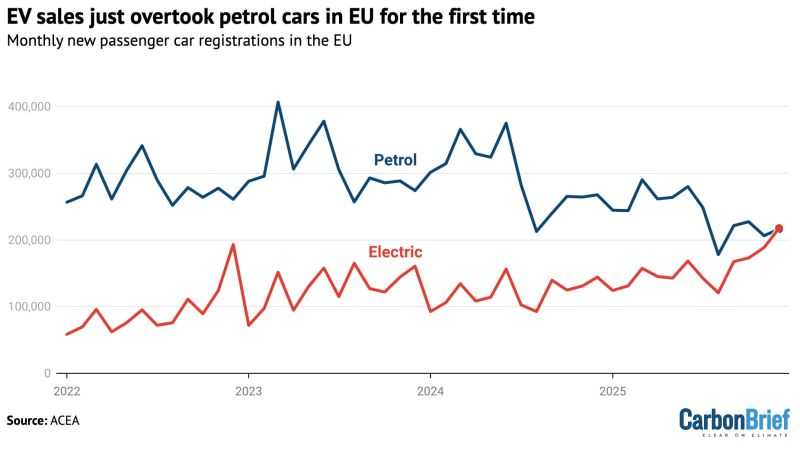

The story of Uruguay's renewable push and why it's relevant here; EVs reach a tipping point in the EU, but they're growing in developing nations, too; Tauranga Crossing and Endless Energy go vertical with a new solar install; new research shows panels keep on trucking far past their warranty periods; and if you need a hand getting out on the waves, how about getting your own electric towing machine.
Read more

The UK Government launches a campaign aimed at giving more people that 'electric feeling'; more electric public transport hits the waves, rails and roads; Australia anounces $25 million solar panel recycling scheme; Black Cap Daryl Mitchell embraces solar and tries to spread the message; and China's solar power made clear.
Read more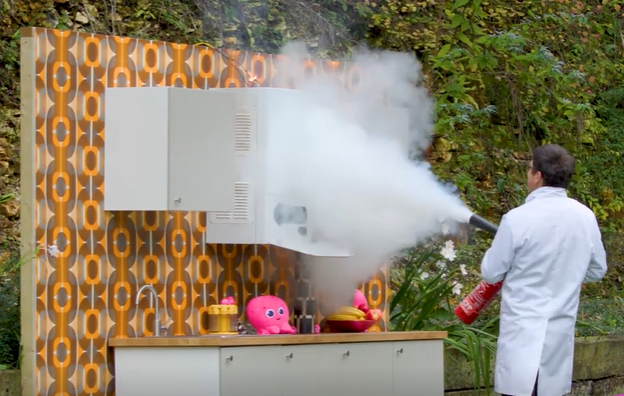

A better electric building at Parliament and an innovative heating system in affordable Arrowtown housing development Tewa Banks; more Australian envy as Queensland landlords incentivised to put on solar to reduce bills for tenants; first Auckland, then Ireland, and now Vessev heads to Taupō; Octopus gives us a reminder that gas in homes is dumb and hydrogen is even dumber; and Alex Honnold's mission to give impoverished communities access to cheap solar energy.
Read more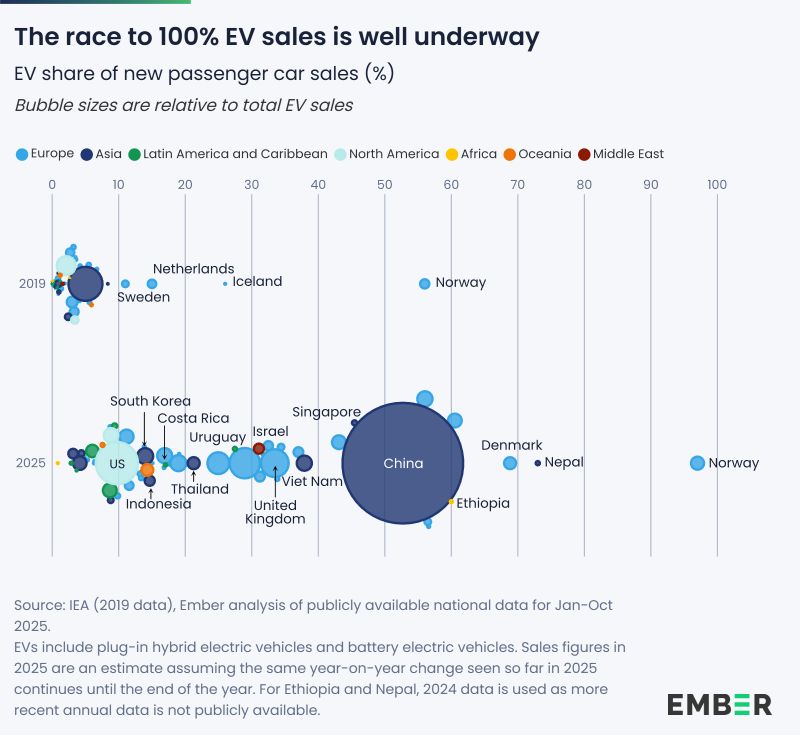

In the last Electric Avenue of 2025, we look at the two biggest trends in the world of energy; the Government goes electric for its fancy fleet upgrade; Nick Offerman offers his services to a US campaign extolling the virtues of EVs; Australia shows what's possible in new homes when you add solar, batteries and smart tech; a start-up selling portable solar and battery systems that wants it to be as easy and common as wi-fi; and The Lines Company looks to put some solar on the roof of the Ōtorohanga Kiwi House.
Read more.png)

How the sun led to higher salaries for teachers in the US and why this should be happening here, too; how "the once-rigid link between economic growth and carbon emissions is breaking across the vast majority of the world" as electrification gives more countries a productivity boost (and how that would allow New Zealand to keep embracing our long, languid summer break); solar continues to weather storms and provide 'free resilience'; Dunedin laundry company Preens goes electric and saves over 300 utes worth of emissions; the company that wants you to drink diesel exhaust; and a wonderful rundown of the Kill Bills tour - and the national electrification opportunity - from one of the tour sponsors.
Read more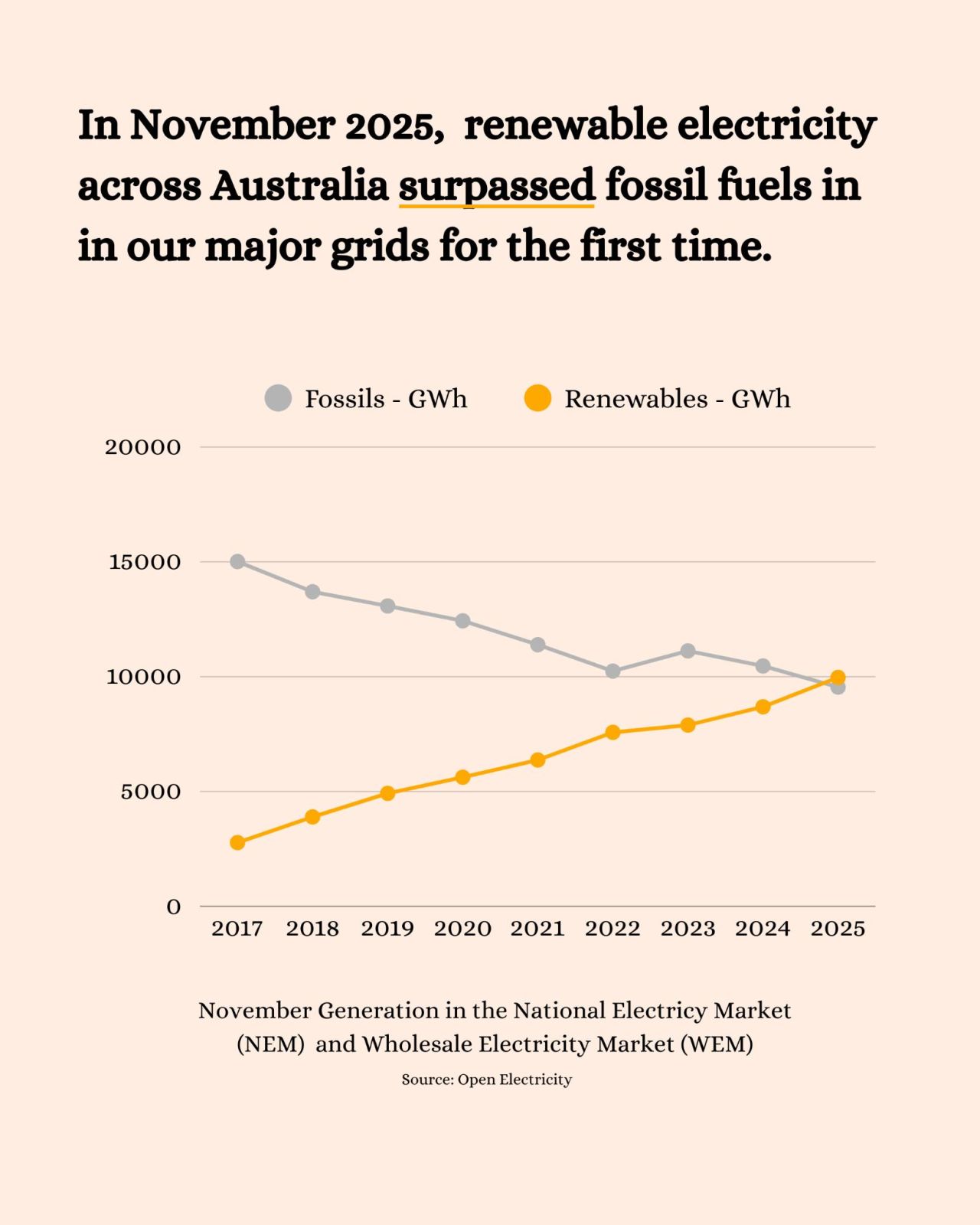

It's time to show some interest in low-interest, long-term energy loans; looking enviously across the seas at Australia's energy push; an electric atmosphere beckons as the Special Olympics heads to the all-electric Parakiore indoors sports and swimming centre in Christchurch; EV Maritime's Michael Eaglen and Evnex's Ed Harvey share their views; Volkswagen follows the honey in its electric van; and climate comedian Oli Frost generously creates an ad campaign for French bank Société Générale.
Read more

World Energy Council shows cost is now the biggest issue in New Zealand's energy sector; more New Zealanders running on the sun; as reality catches up with gas users, the Google data tells a story in Australia; focus on the benefits for climate comms; electric events FTW; and Tom Sainsbury gets dirty for Uber Electric
Read more

The latest battery technology explained (and why we need your help with a submission so that anyone with a battery can get paid fairly for exporting when we really need it); the innovator's dilemma came for Nokia, and now it's coming for petrol cars and fossil fuels; Basis and Octopus join forces to lower bills (and the tech that is bringing bills down to zero); a new contraption for those hoping to pull off some sweet 'electricks'; and Kirin's electric salt innovation.
Read more

“As long as you’re reducing your reliance on fossil fuels, there’s very little room for regret.” That’s a statement we can get behind and it’s something Rhys Boswell, the operations manager at Christchurch Airport, is continuing to push for.
Read more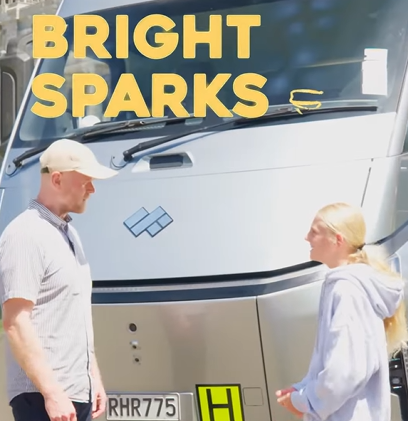

It's quiet. It's comfy. And it's fast. Those are the things Sky Ryan loves about the Deepway electric truck, which recently dropped off 123 boxes of cherries to all our MPs as part of The Great Electric Cherry Migration. Her dad Jamie is the general manager of Etrucks, a company bringing lots of big electric kit into the country, and when we talked to her the pair were about to embark on a roadtrip back to Auckland after a successful stint in Parliament grounds. Understandably, she was most looking forward to the multiple ice cream stops along the way and we're pleased to report she got two triple-scoopers.
Read more

When it comes to increasing EV adoption, the people in the car yards can be very influential. There are always a lot of questions to answer and a lot of misperceptions to confront and Cordt Bensemann from Eastwood Motor Group has been doing that in the Wairarapa.
Read more

For Andrew Cranswick, operations manager at Tumu Timbers in Hastings, the calculation was pretty simple: solar costs had dropped by about a third since they last ooked at it, and power prices had gone up by about the same amount.
Read more

Your coffee machine might be electric, but your coffee beans probably aren't - unless you're buying them from Queenstown roastery Ryder.
Read more

Whether you're looking for an electric fruit picker, a farm workhorse, a high-end golf cart, a food and beverage hauler, a mobility scooter or a fold-up e-bike, Barry Hillyer could be the man you need to talk to. The E-motors showroom in Queenstown is home to an impressive collection of smaller electric machines and, while the big electric stuff like diggers and loaders creates plenty of attention, the small end of town is where the rubber is hitting the road in many other markets, where a lot of the innovation is happening and where the options are increasingly making economic sense.
Read more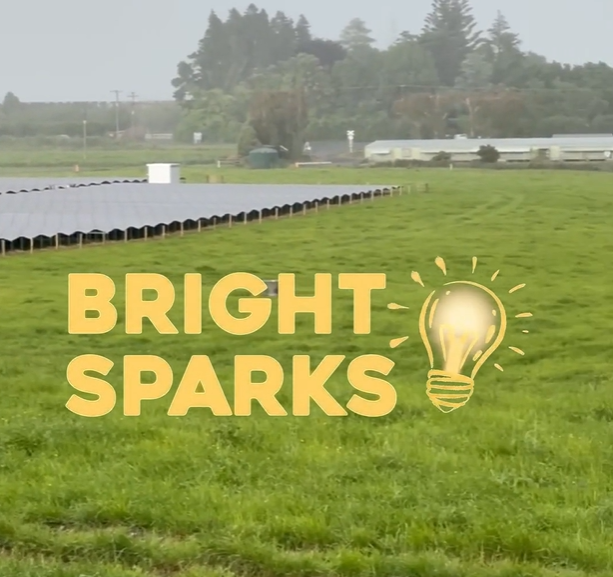

We've seen electric cherries and electric chickens. How about electric piggies? CJ and Tim Lepper run a pig farm in Taranaki and, like a growing number of clever rural folk, they realised that solar was a slam dunk for their business.
Read more

When it comes to electric farming, "the numbers are becoming undeniable," says Nicholson Poultry's Jeff Collings. With 60kW of solar, a Nissan Leaf as a 'farm quad', electric mowers, an electric ute that can run a water blaster, and even a chicken manure scraper made out of a wrecked Tesla that, as Rewiring's Matt Newman says, looks a bit like something out of Mad Max, "almost everything is electric". There aren't many others in New Zealand who have gone this far down the electric road. And, with his electric Stark Varg, the fastest off-road motorbike in the world, he's obviously having plenty of fun on that road, too.
Read more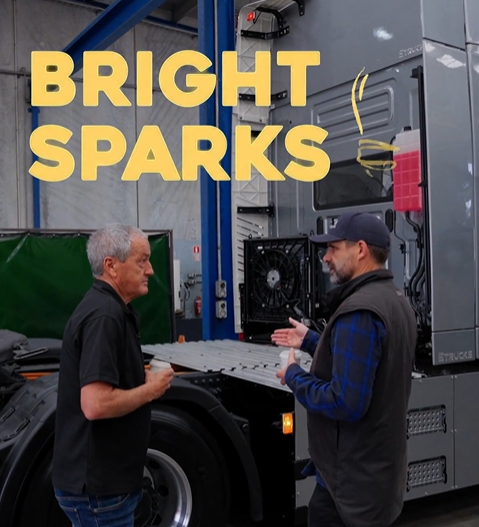

Talk about driving change!ETrucks' Ross Linton is at the forefront of New Zealand's nascent electric trucking scene and can claim responsibility for a number of firsts, from the country's first electric concrete truck to the country's first battery swap set up. Since he brought his first electric truck in to the country back in 2018, the technology has advanced massively and driving on electrons has become quite a bit cheaper than diesel and, not surprisingly, that's inspiring a great deal of interest among businesses.
Read more

'I'm a bogan and I have no problem with the bastardisation of motor vehicles. You can stick whatever motor you like into whatever else you like.' Antz Davies, you are a true boganic Bright Spark and we salute you because it's the bogans that we need to be convincing! Davies is the main brain behind Watt Rods, a Lower Hutt company that converts old cars to electric. "Any and all vehicles, old or new, four wheels or two, big or small, on road or off, fully customised to your requirements."
Read more

